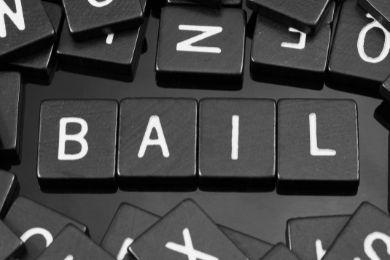When Is a Personal Bond Available After an Arrest?
 After being arrested, a person will usually need to take certain steps and meet a number of requirements before they can be released. In many cases, a judge will set bail, and the person will be released once this amount is paid. While a person may be able to pay the full amount of bail, securing a bail bond is often the better option, since the person will usually only be required to pay 10% of the full bail amount. However, in some instances, a person may be able to receive a personal bond where they will not be required to post bail.
After being arrested, a person will usually need to take certain steps and meet a number of requirements before they can be released. In many cases, a judge will set bail, and the person will be released once this amount is paid. While a person may be able to pay the full amount of bail, securing a bail bond is often the better option, since the person will usually only be required to pay 10% of the full bail amount. However, in some instances, a person may be able to receive a personal bond where they will not be required to post bail.
What Is a Personal Bond?
The purpose of bail is to make sure a person shows up in court when required. The bail that a person pays to the court will be refunded once their case has been completed, and if the person does not meet all of their requirements, this amount will be forfeited. If a judge does not believe that bail would be needed to ensure that a person will appear in court, they may choose to issue a personal bond. This is also known as being “released on one’s own recognizance.”
A personal bond functions as an agreement in which a person will commit to appearing in court for future proceedings throughout their case. A judge may also place certain requirements or restrictions on a person during their release, such as requiring them to undergo treatment for drug or alcohol abuse or submit to drug tests during their case. A judge may still set an amount of bail, and if the person does not meet all requirements during their case, they may be responsible for paying the full amount. Other penalties may apply as well, such as being taken back into custody or facing additional criminal charges.
As with other types of bail, the decision of whether to release a person on a personal bond will depend on factors such as the person’s criminal record and whether they are a flight risk. A judge will likely look at any previous criminal convictions, whether a person has shown up as required to scheduled court dates in the past, whether the offense they are charged with indicates that they may be a danger to others and whether they have ties to their community (such as a job or relationships with family members) that would make them less likely to leave the area during their case.
Contact a Collin County Bail Agent
The type and amount of bail set by a judge can be different depending on the circumstances surrounding an arrest, and in many cases, a person will be unsure about their options for paying bail and getting out of jail. At Doc’s Bail Bonds, we will work with you to make sure posting bail will be affordable, and we will help you meet all requirements that apply during your case. To get help from a Dallas County bail bondsman, contact us 24/7 by calling 214-747-4110.
Source:
https://statutes.capitol.texas.gov/Docs/CR/htm/CR.17.htm










